If you are considering ADOPTING A CHILD and INDUCING LACTATION so that you can BREASTFEED YOUR ADOPTED CHILD, then this article is for YOU. Keep some tissues handy. 😉
It’s an interview with Louise, the gorgeous, lively Mom of 2 daughters, who kindly gave us this post, originally written for her Adoption Agency, ProCare:
On with the Interview…
Why was it so important to YOU personally to breastfeed?
I’m always very pro things that are natural and not kind of artificial, which is a joke because I induced lactation. (Louise Laughs Heartily).
Because I had breastfed our biological daughter for 17 months, and I had seen the benefits health-wise, bonding-wise… and for me it’s the same kind of idea as labour. I feel that my body was created to do something and I should give it a try, try and see if that would work. That’s how I felt about labour as well, was to just kind of do what your body was made to do. I realise that’s not the case for everybody, some people aren’t lucky enough to be able to do that.
Also I think the part of getting in touch with your own body and figuring out how it works and listening to it… does that answer your question?
I just want to highlight something here, you mentioned that you breastfed your biological daughter for 17 months, so you do already have your own daughter as well?
Yes… well, both kids are my own, but one daughter is biological and one is adopted. (Laughs)
Our biological daughter was about 3 and a half when our adopted daughter came home.
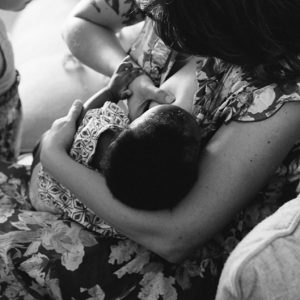 What made you adopt after a natural birth?
What made you adopt after a natural birth?
We laugh about it now, but at the time we couldn’t laugh about it. My mother’s first response, bless her heart, was, “Just be honest with me, was your birth with your first daughter so traumatic that you decided to take the easy way out and adopt?” I was horrified that my mother would describe adoption as the easy way out. (Laughing). Shame, she later apologised profusely, realising what she had actually said. But I think that’s always people’s gut response, (especially people of a certain generation), “If you could have your own, why would you choose to adopt?”
For us, both children are our own, whether they are biological or not.
The birth with our first daughter was a long one. I think the entire thing was 38 hours, which was looong, but I still say, if someone walked in the front door now and gave me the chance to be back in that room, I would say, “Yes, aaany day. Even though it was sore, even though it was hard, even though it was hectic, because it was such an incredible experience. So it wasn’t the fact that the birth experience was traumatic, or I felt, “Oh my gosh, I can’t ever do again.”
So in terms of the birth, no – it wasn’t that. Pregnancy… I didn’t much enjoy being pregnant. I’m not one of those women who say they feel like they were born to be pregnant and they just want to do it over and over again. I didn’t actually enjoy my pregnancy, but that also wasn’t the reason we adopted our second.
We felt specifically called to adopt by God. Both my husband and I felt that we had so much love still to give, and my husband always jokes and says, “with our genes, why would we even biologically have another child? That’s like asking for trouble.”
We just felt we had a lot of love to give, and we had gone through the one process, and we actually felt that God was calling us to adopt. It sounds like we’re some kind of family that says, “You know, God called us to have 65 children, and we listened.” (Packs out laughing). [No, you don’t sound like that at all.]
Did you meet the Birth Mother?
Yes, we did.
But it was through ProCare, the Agency, so it wasn’t an open adoption?
ProCare has an option on their form to tick if you would be open to meeting the Birth Mother, and we said we would absolutely, if she felt comfortable with it. And she said she did feel comfortable with it, and so on the day that our daughter came home, we went to the home that the Birth Mom had stayed in for the last few months of her pregnancy. And she met us there, and actually handed over her daughter to us [I’m in tears], which was quite emotional. It was a roller coaster. I’m also in tears.
We had really hoped that we would be able to meet. I know often the adoptive parents and the biological mother agree to meet, and on the day that doesn’t end up happening for whatever the reason may be (there are many).
So we really felt very, very lucky to meet her, and take a picture of all of us together. Times are different. For many people it’s not like 50 years ago, where you adopted because you’d tried to fall pregnant and it was a last resort, and your adoption was hidden from other people, and also from the child. So that when you’re 18 you find out that who you thought was your biological parents, aren’t. In our case it was very different, we are not trying to hide from our daughter that she is adopted. We can’t really hide the fact that she’s adopted, unless we made up some kind of elaborate story, because our skin colour is different.
I think people are also so fearful of that story: “But what if she tries to find her biological mother, and what if her biological mother comes looking for her?” And for me, initially, when we started the process, that was something that I felt, because it’s just that thing of the unknown.
But now being in it, I don’t want her biological Mom to feel that when they finally do meet she has to make up for 18 years of not knowing her. So we send images and notes from time to time to say this is how she’s doing, this is how we’re doing as a family, so that it keeps her in the loop.
So it is a closed adoption, but we do have contact through the Agency, and they keep everything we send on file, and if the biological mother asks for it they give it to her.
So we also had the opportunity to meet, get a photo together, and this is something that we can share with our daughter as she gets older, to let her feel secure in the fact that her biological mother didn’t leave abandoned her, but it was because her mother loved her so much, that she decided to entrust her to us.
Thank you so much for sharing the real story…let’s get back to breastfeeding…
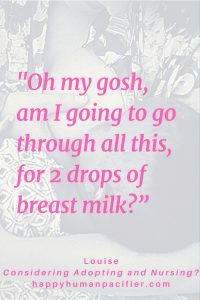 Did you have any challenges, breastfeeding? I know induced lactation is a challenge…
Did you have any challenges, breastfeeding? I know induced lactation is a challenge…
The first thing was I am pretty emotional. I’m very pro things that are natural, so the first mind-bend for me was actually taking the medication to induce lactation. Initially I just burst into tears, and I felt like some kind of Frankenstein. I try to be very careful with everything I put into my body, in terms of food and I try to be really healthy, and do things as naturally as possible. I mean my oldest daughter, who is now 4 and a half, still hasn’t had sugar.
So the thought of taking all these drugs, and taking so much of it to induce lactation, I think that was the first thing to get over.
And then, obviously after taking it, you’re pumping your body full of so many different hormones. And Jean Ridler actually helped me, because one day, when I was saying this to her, she said: “Well, remember if you were naturally pregnant, there would also be a whole bunch of hormones coursing through your body.” And the fact that I had been naturally pregnant before, just saying that helped me realise, actually, it’s exactly the same. If I were pregnant, I would also be feeling emotional, and all over the place.
That was the first thing to get over. My poor husband was very patient, and he was tried and tempted throughout this process because I was a devil a lot of the time.
And the second thing was that I had read this article about a woman who breastfed her daughter, and on the day she came home, she latched immediately in the car. And obviously that’s an article, and I don’t know her personally, and I don’t know the back story. When my daughter came home, she also latched initially, and I thought “oh my gosh, this is amaaazing”, but afterwards she wouldn’t latch at all.
And in fact, when I was trying to introduce the breast, she would start crying, and that was so hectic because I felt that I had gone through all these months, and all this preparation, and then… nothing. And also, feeling like, I hadn’t had any time with her. The first 3 months of her life I didn’t know her, I didn’t have any time to get to know her and what’s she’s like, and she didn’t cry for anything else. She only cried when I offered her the breast.
A friend of mine is also adopting, and she’s also inducing lactation. The other day, as encouragement for her, I went into the chat history on whatsapp that I had with Jean, and I sent it to her, because she’s also in the beginning part of the journey now. And I was so surprised, when I looked at it, I actually had such a laugh, because I could clearly now, being on the other side of it, see what kind of mental state I was in at the time. At the time it felt like it was going on for months and months and months, and actually, it was probably about 10 days that Jean and I were messaging back and forth: What are we going to do, have you tried this, yes I have, no it doesn’t work, ok, try this way, or this way…
Also one of the things I feel very passionate about it is skin to skin contact. I did that with my biological daughter and I had known that I would do it, even more so, with our adopted daughter.
But when this happened, I realised I need to up it, and so I basically carried her around, strapped to me, skin to skin for as much of the day as I possibly could. She was also co-sleeping with us, which also helped. And one of the other things that Jean told me to do was Paced Bottle Feeding.
She had been with a Kangaroo family for 3 months and they had been bottle feeding. So when she came home she was used to a bottle.
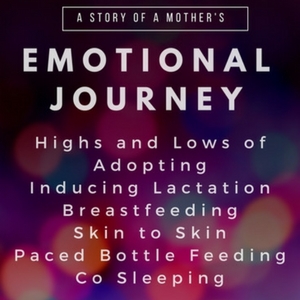 So we tried:
So we tried:
1. Paced Bottle Feeding
2. Skin to Skin
3. Co-sleeping
In the beginning she got so irritated with the paced bottle feeding. She was used to being put in a cot, and guzzling down her bottle down and then she would fall asleep. So obviously me doing paced bottle feeding was throwing a spanner in the works.
What is Paced Bottle Feeding?
Paced Bottle feeding is where the child doesn’t lie down when they drink. They have to sit up. So it’s not that traditional image of someone holding a baby in their arms and the baby lying horizontally. Paced bottle feeding means that you tip them up in more of a sitting position and obviously they can’t hold the bottle because they are too tiny, so then you as the parent, hold the bottle horizontally, not at an angle. Because the bottle is horizontal they have to really work at getting the milk out, they have to suck harder, which also helps with mimicking the type of sucking they would have to do to get milk from your breast.
A baby that breastfeeds is used to having to work to get the milk out, versus a baby that doesn’t breastfeed – chances are they are lying in their mom’s arms or somewhere else, guzzling the milk down. The thing with this is that they tend to overfeed, because the supply is just there. I guess that’s where the word paced comes from, because they are not pacing themselves at all, they are just going full speed, and they get used to the feeling of being overfed.
The combination of those 3 things really helped a lot, and then she would kind of start to latch, drink a little bit… and we had to persevere, and then eventually she did latch, and then it was completely at the breast and not feeding with the bottle anymore.
I’m backtracking now to before our daughter came home, but in the very first consultation with Jean, she had explained that when you first start to express, you’ll only get a drop of milk. But because 3 or 4 months had gone by between my first consultation with her and when I started pumping, I had forgotten about that. When I started pumping, I would literally get a drop. In fact I pumped for a couple of days before I got that first drop of milk. That was really hard.
With my first daughter, I didn’t have any cracked nipples, it just kind of happened a lot easier. I always heard stories, my friends would say: “my nipples are cracked, my breasts are sore”. And this time around, it was very different to my first experience. I didn’t have engorged breasts because of the milk. When she had finished drinking I would also supplement using the SNS feeding method because I didn’t have enough breast milk.
Were the cracked nipples from pumping or feeding her?
It was before she came home, when I started expressing, and I think it was just due to the friction of pumping and my breasts not producing milk yet. And because you do it so often, I think I was expressing every 3 or 4 hours, and I hadn’t thought to use any kind of lubrication. It was just the dry pump on the dry breast, suctioning hectically every 3 or 4 hours. Obviously that created friction over a few days. I had spoken to a friend who had real problems when she was breastfeeding her baby, with cracked nipples, and it being very sore, and mastitis, and she said: “why don’t you try using just a little bit of coconut oil?” And so what I started doing, again because I wanted to do something natural, sometimes, before I expressed, I’d put a little bit of coconut oil on the nipple before pumping. It’s natural and has antiseptic properties. And after a few days the pain and cracked nipples completely went away.
So you didn’t have to do laser or go out in the sun and sunbathe your nipples?
I didn’t do any of that, no.
It’s very soothing and I think I caught it early enough. Initially, at night, I would wake up to express and I had a little cooler bag… thinking about it, it feels a million years ago… I had a cooler bag and would put the milk in there. I didn’t express for very long at night, I was just too exhausted. What I would do is put a lot of coconut oil on before I went to sleep to give it a number of hours to sink in and heal, and it seemed to work.
I’ve read some articles where Mothers say they only used mechanical stimulation to induce lactation. What was it that convinced you, a pro natural Mom, to go for the hormonal protocol?
I think the main thing for me was time. We’d started the process already. With ProCare, you can tell them the kind of time frame you’re looking at. We had said: “if it was yesterday, even better!”
So I started on the Protocol just after the first home visit, and so I knew, best case scenario, I would have maybe 3 months. The desire to breastfeed was stronger for me than my aversion to taking the hormonal protocol.
The idea of trying my luck, and seeing what would happen if I were to take herbs like Blessed Thistle and Fenugreek… I was concerned she would arrive home and I wouldn’t be able to breastfeed.
[Editors Recommendation: Mommy Knows Best has a great, reasonably priced Lactation Supplement for Increased Breast Milk Supply containing Fenugreek Extract, Blessed Thistle, Fennel Seed, and DHA]
I had read somewhere that if you want to give yourself the best possible chance to make the most possible milk, try this route. I’m sure, even in saying that, someone’s ears are hissing who only took the natural approach and got a lot of milk. But in my experience, if you want to do it was quickly as possible, this would be the way to go.
If I knew I had a year, I think I would have tried a completely natural way for 6 months. I think I would have tried to just take the herbs and use the hand stimulation method to see what happens.
Mentally and emotionally, we were already on such a roller coaster about the adoption itself. The fact is, even if you’re naturally pregnant, you still have no control or guarantee. It’s just more painfully obvious when you’re going through an adoption. We were already going through all of that, I didn’t want to add any further pressure or concerns.
The natural route seemed more like a gamble. I had read more stories of people following the hormonal protocol and successfully inducing lactation than people going with an alternative route.
To me it shows just how much you really, really wanted to nurse your child, that you were willing to put yourself through all of this. I commend you for setting your own concerns aside to give your daughter what you felt was best for her.
Did you get to the point that you had the same amount of milk as with your biological daughter?
I don’t actually know. With my first daughter I never supplemented with anything else and I never did anything other than breastfeed her. The first time I touched a breast pump was with our adopted daughter. So I never knew what she was actually getting, there was no way to measure what she drank.
When our biological daughter was very tiny, she was a month old, my husband had to go into hospital for 2 months, and it was a very traumatic and stressful time, and in my head, I always told myself that my milk supply suffered because of that. I have no idea of knowing what supply I had with the first baby.
Also, Jean was very clear that, having breastfed before has no bearing on inducing lactation. If you had breastfed before and had a large supply, or very little, and later induced lactation, you’re not guaranteed that your body will mimic that same pattern. It could be completely different.
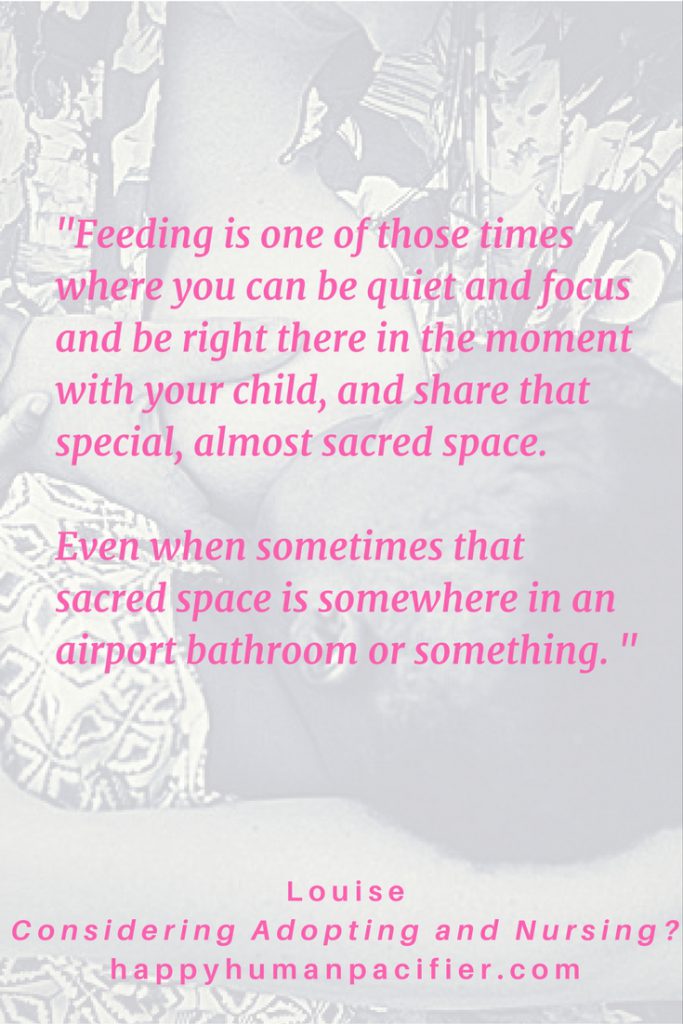 What do you love most about breastfeeding?
What do you love most about breastfeeding?
I think the fact that, again, like I said in the very beginning… one of the things I remember from our first antenatal class… the amazing midwife who did it said, “Your body was designed to do this thing, and now you’re crossing this threshold which makes you enter this space along with other women who have also gone through it, and that can be such an empowering thing.” That is, if you’re lucky enough to experience natural birth, or breastfeeding, or whatever the case may be. There are so many messages out there about how being a woman automatically means you are soft, and must like pink and take the back seat, and blah blah blah…and I’m not a feminist by any definition of the word, but the fact that you’re in your body, and you get to experience something your body was made to do – that just felt so empowering to me.
There seems to be a trend of women having children when they are older, and I have so many friends who are wondering, “Will I even be able to do x, y and z… whether that is conceive… birth naturally… be a good Mom… or whatever…” And that one thing, feeling like my body was able to do this, was one of the perks.
And also with both my daughters… because everything else is so busy and scheduled. For a lot of women because we tend to multi-task and do 50 things at once… Feeding is one of those times where you can be quiet and focus and be right there in the moment with your child, and share that special, almost sacred space. Even when sometimes that sacred space is somewhere in an airport bathroom or something. (packs out laughing).
But I think that being in that moment, being right there. I personally struggle, often times, to be in the moment, and breastfeeding felt like a time for that to happen, which was incredible.
When I was 18, I went to live abroad and was a nanny for 3 girls. The one little girl was a baby of 3 months old when I arrived there. I remember a couple of times when herparents weren’t around, that I would put her to sleep at night and I would hold her and feed her with a bottle. And that was always to me, so special… I remember the smell andfeel of the room, the dimmed lights. Even then, I wasn’t even a Mom yet, that was a special time for me. To think that this innocent person was dependent on me. I felt somehow that I was useful.
Fast-forward a whole bunch of years, it was a heightened experience with both my children where I felt like this tiny innocent person is completely dependent on me for life. They are drinking from me to be able to live and be nourished, and I feel like that is such an incredible honour and privilege.
And that’s another thing. I felt that, because a lot of people don’t have that privilege, I felt that if I’m able to do it, best I try, and enjoy the experience because there are people who long to do so and can’t, for whatever reason.
[Beautiful answer, thank you so much for that!]
Can you describe any joys of nursing… any beautiful moments you’ve experienced?
One particular moment I’m thinking back to now, when our daughter came home and she did latch, it was an amazing time. We were sitting on the beach and I was breastfeeding our daughter. And so, obviously, there were a couple of stares, because this peachy woman was breastfeeding this brown body in public on the beach.
In that moment I felt a whole bunch of women were celebrating inside me because I was able to breastfeed my adopted daughter, in public, on the beach, and nobody could say anything about it. And I didn’t care that people were staring.
That was one moment I think back on now that felt so empowering.
What do you feel is the single most important benefit of breastfeeding (or list your top 3 if you prefer)
1. Health
The benefits of getting nutrition not tarnished with all the things that are in formula.
[Did you have to supplement with formula at all?]Initially I didn’t supplement with formula. It took 4 months to express all that milk, and it took a month and a half or 2 months and she had depleted the whole stash.
After that I had to supplement with formula using the SNS. I used two organic baby formulas: Hipp Organic and I also used Holle. I researched the best options I could possibly find in South Africa without added sugar or gluten.
2. Being Able to Bond
Initially, the one thing I had to get over was that I wouldn’t be with our daughter for the first 3 months of her life. And I knew that the other side of that was that, it seemed like it would probably be worse, to have her come home straight from birth, and then have the birthmother say, “I’ve changed my mind”, and she has to be taken away.
So I understand why that had to happen, but it was very tough to deal with. That’s why I longed to bond with her as quickly as possible, once she came home.
Once you got over that really difficult time where she didn’t want to latch, did it become the bonding you were always hoping for?
YES. I remember Jean saying in my very first consultation with her… I know exactly where she sat on the couch when she said, “it’s going to be hard, but if you have support, what all mothers who’ve done this protocol say to me, is: “Even if you just get 2 drops of milk, it will be worth it.”“And at the time I thought; “Oh my gosh, am I going to go through all this, for 2 drops…?” BUT SHE WAS SO RIGHT. Even though it was so hectic emotionally, it was completely worth it.
The day that she finally latched, the first time she latched again after that very first day, my husband was crying, I was crying… and oftentimes when I breastfed her I was in tears, because I was so happy and so grateful. It really was worth it all.
What do you feel has been the primary benefit for your adopted daughter?
I think maybe also the bonding. If I had to compare, having had our first daughter, and our second daughter, one thing that my husband said was hard for him was when we had our first daughter, was that he wanted to help, but he didn’t know how, or what to do, to be there. And he is a very involved Dad.
With our second daughter, that was something that was incredible for him. He was able to help with the paced bottle feeding. He was able to bond with her sooner than with our first daughter.
When she came home she was on only breastmilk. When we did the paced bottle feeding, that was all breast milk that I had expressed. He was able to help with that and bonded a lot quicker than he did with our first daughter, when he wasn’t able to help out.
The major benefit for our daughter was bonding, not only with me, but also with her Dad.
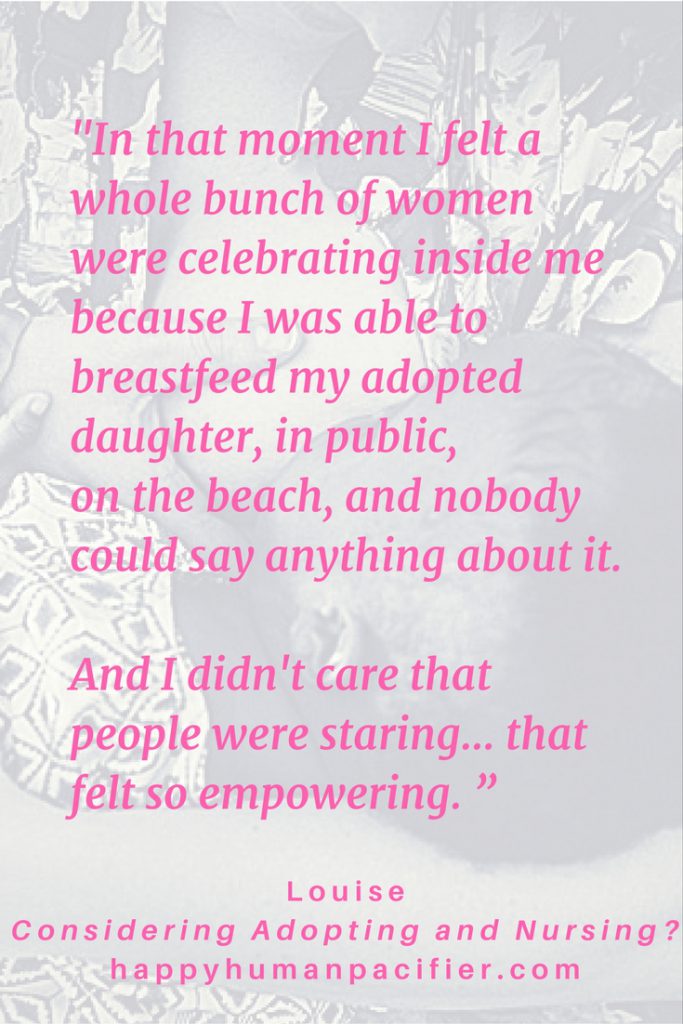 Did you feel very alone, or very supported?
Did you feel very alone, or very supported?
There was a lot of support. I laugh at myself, because Jean said in that first consultation, “Remember, you’re going to need a lot of support. “ And as she walked out the door, I thought, “You don’t know me. I have support, lady.”
But what I had not taken into account of course was that I personally struggle to ask for help. My tendency is to wait until, sometimes it’s close to being too late, to say: “I need help, I’m in trouble.” I think a lot of the times I didn’t vocalise how hectic it was for me.
My husband knew because he was on the receiving end of all my moods and crying. And my friend who works next to me knew, because she sat next to me and saw how many times I went for a nap, and was hysterical and had red eyes from crying so much.
The support was definitely there, but I didn’t fully embrace it from the beginning.
Once I remembered that Jean had said, “I’m here, reach out”, I did, and it started feeling a lot easier.
I didn’t know anyone personally who had gone through the adoption process, and I didn’t know a single person in real life who had induced lactation. I could speak to friends who’ve had children, are midwives, are in the baby genre, but no-one who knew exactly what I was going through.
A friend of mine gave me an article that was published in the Your Baby about a woman who had induced lactation. She sent me the article because she was so excited about this woman who had induced lactation. Reading that was a turning point for me. I remember reading that article, and feeling “Oh my gosh, this woman gets me. I can go on. She is describing exactly my life and how I feel.”
Do you have any advice for other mothers who are considering nursing an adopted child?
1. Make sure you have support, because it’s not easy.
2. If you start out on this path, know what your reason is for starting out.
If possible, have it somewhere accessible (e.g. journal it). Because when times get tough it’s always good to have that initial reminder, from your past enthusiastic self.
If there’s a product someone is using, and I read about it online, I might go, “Okay, cool, maybe I’ll try that.”
If a friend of mine says “this product is amazing”, I’ll be more inclined to try the product.
But if I had some kind of note from myself from the past to say “you must try this product”, I would obviously do it, because it’s me and I feel I know me better than anyone.
It’s almost like time travel I guess. If you had told your future self “it’s going to be okay, and these are your reasons for doing it”, when you feel like you can’t go on, that would be very helpful.
3. Persevere.
We are a quick fix culture, and everything has to work smoothly the first time around and people are so pressured with so many things.
If you look at the process of conventional relationships… there is so much pressure to fall in love, and it must be the most amazing person, and then you must be married, and it must be the most amazing day, and then you must have sex on your honeymoon, every day, 8 times a day, and it must be the most mind-blowing, earth shattering orgasm you’ve ever experienced, and then you have kids, and they have to fulfill you in the most incredible way, because otherwise you’re not… blah, blah, blah…
Especially when it’s things that a lot of people don’t talk about… when you open up and speak to people…you find there’s other people that feel the same way. Someone said to me the other day, that the most helpful thing you can say to someone is “me too’”.
This interview is the 4th article in our series in Induced Lactation. You may also enjoy:
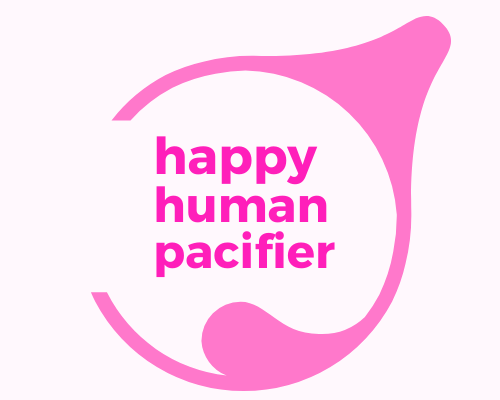

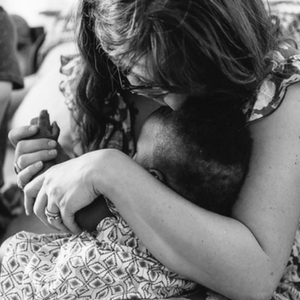
Wow, Lauren, you’re really awesome! Great interview, what a fascinating true story… Never knew that Louise could really do that – induce lactation to breastfeed an adopted baby. Great achievement! Indeed, such a beautiful experience to breastfeed your adopted child. Such a gift from God in itself, besides the unlimited love shared with you. You all are my idols that I have much to learn from… Cheers~
Thanks for your enthusiasm Paige! So happy to hear you found Louise’s story as fascinating as I did.
Interesting article. I didn’t even know there was such as thing as induced lactation. I had never heard of it. Being the mother of five children myself, I can relate to all the feelings and emotions that go with being pregnant, and then holding that new baby in your arms for the first time, and being able to cuddle and feed them. It’s nice to hear that lactating can be made available to all mothers, regardless of whether they gave birth or not.
Thanks for your lovely comments, Dusty. Wow, 5 children! Awesome!
I totally agree with you, absolutely magical that Moms can breastfeed even if they haven’t given birth.
This was a great read! Thank you! I have two children of my own, i wasn’t able to breastfeed due to bad genes I guess, haha. But I have always thought about adopting. A huge congrats to the mothers out there that can breastfeed, it is hard work and a huge congrats to those adopting, never mind those doing both! Great page! Keep up the good work!
Thanks for your comments Jessa! So sorry to hear you couldn’t breastfeed as I know you like the natural approach. My guess is it was more likely due to bad advice or lack of support, than bad genes. Unless you are in the minority of women who have a medical reason why they cannot breastfeed (estimated at less than 5%).
I am the mother of four. I breastfed three. My daughter breastfed her daughter for over 2 years. It is only healthy if the mother eats and drinks the right things. Breastfeeding is a special kind of bonding. And adoption is a special kind of loving. Put them both together, it’s heaven.
Aah, Loretta, thanks for your beautiful comments. I’m interested to know what you mean by eating and drinking the right things. I was initially taught that there was no need to watch what I ate, and to limit alcohol to one glass of wine 2 hours or more before a feed. After about a year I restricted wheat and dairy in my diet, but I think it was more for me than for my son.